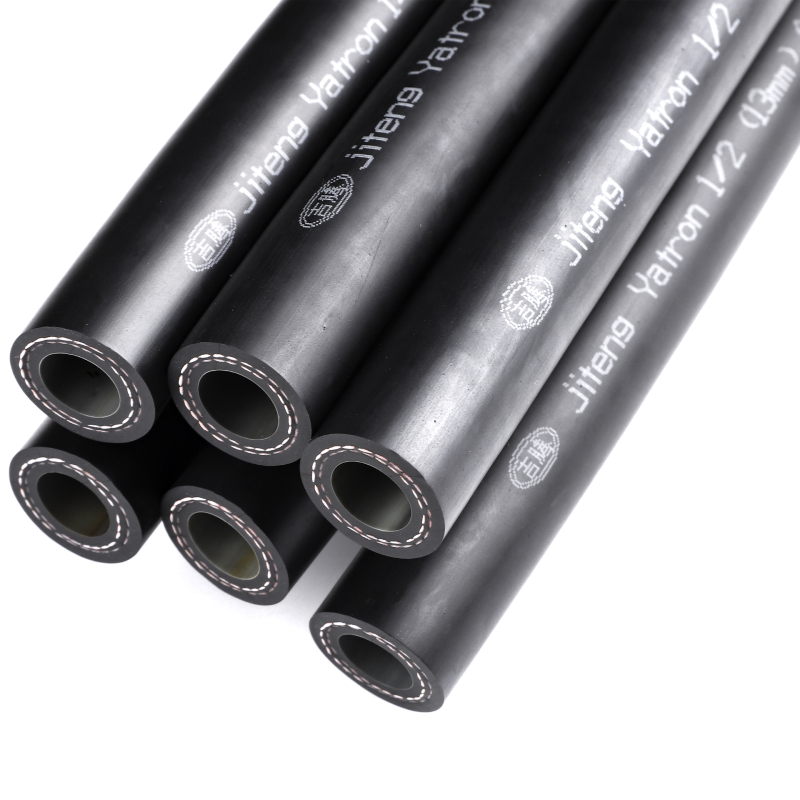Choosing the Right Fuel Hose for E85 Compatibility and Performance
Oct . 18, 2024 09:24 Back to list
Choosing the Right Fuel Hose for E85 Compatibility and Performance
Understanding E85 Fuel Hose The Key to Efficient Flex-Fuel Systems
In recent years, the push for more sustainable energy sources has led to the development and increasing use of alternative fuels, one of the most notable being E85. Composed of 85% ethanol and 15% gasoline, E85 has gained popularity for its potential to reduce greenhouse gas emissions and reliance on fossil fuels. However, to ensure optimal performance and safety when using E85, high-quality fuel hoses specifically designed for handling this type of ethanol blend are essential.
What is E85?
E85 is a flexible fuel that is primarily used in engines specifically designed for flex-fuel vehicles (FFVs). Ethanol, derived from plant materials like corn and sugarcane, is a renewable resource that emits fewer harmful pollutants compared to traditional gasoline. The benefits of using E85 include lower fuel prices in some regions, improved octane ratings, and reduced greenhouse gas emissions. However, this also comes with challenges, particularly regarding engine compatibility and the materials used in fuel delivery systems.
Importance of E85-Compatible Fuel Hoses
Standard fuel hoses are typically made from materials that can degrade when exposed to high concentrations of ethanol. Ethanol has corrosive properties and can cause traditional rubber hoses to swell, crack, or even leak. Therefore, using a specially designed E85 fuel hose is crucial for any vehicle or equipment that utilizes this biofuel. E85-compatible fuel hoses are typically made from more resilient materials such as fluoropolymer or other ethanol-resistant compounds that can withstand exposure to ethanol without deteriorating.
Features of E85 Fuel Hoses
When selecting hoses for E85 fuel systems, a few key features should be considered
1. Material Composition As mentioned, the hose must be made from materials that resist the corrosive effects of ethanol. Look for hoses that are explicitly marked as E85 compatible.
2. Pressure Ratings E85 fuel hoses must be rated for the pressure requirements of the fuel system. Higher pressures can be generated in modern engines, particularly in performance applications.
3. Temperature Resistance The hoses should maintain their integrity under a wide temperature range, as fuel delivery systems can experience significant thermal variations.
e85 fuel hose

4. Flexibility and Durability Hoses need to be flexible enough for installation but durable enough to resist abrasion and wear over time.
5. Safety Certifications It is essential to choose hoses that meet safety standards and regulatory requirements to ensure vehicle safety and environmental protection.
Installation and Maintenance Tips
Proper installation and regular maintenance of E85 fuel hoses are critical to ensure system efficiency and prevent leaks that can lead to hazardous conditions. Here are some tips
- Follow Manufacturer Guidelines Always refer to the vehicle or equipment manual and adhere to the manufacturer's recommendations for hose selection and installation procedures.
- Inspect Regularly Perform regular inspections for signs of wear and tear, such as cracks, leaks, or bulges in the hose. Address any issues immediately to prevent catastrophic failures.
- Use Correct Fittings Ensure that the hose fittings are compatible with E85 and designed to hold up against high pressures and corrosive materials.
- Avoid Mixing Fuels If you switch vehicle types or fuel sources, be mindful to avoid mixing E85 with fuels not compatible with ethanol to maintain system integrity.
Conclusion
As the demand for alternative fuels like E85 continues to grow, understanding the components that support these systems is paramount. E85 fuel hoses play a crucial role in the safe and efficient operation of flex-fuel vehicles. By using hoses specifically designed for E85, not only can you ensure the longevity of your vehicle’s fuel system, but you also contribute to a more sustainable future. Investing in the right materials and adhering to best practices in installation and maintenance will help you reap the benefits of this innovative fuel alternative while keeping your vehicle running smoothly.
